Did you know that 85% of an exhibitor’s success lies in the performance of the staff? Having the right people on your stand will significantly increase your chance of success at the exhibitions your company participate in.
For companies with B2B focus, having the right people on the stand is even more important as exhibitions are the main type of activity where a company would get their top of funnel leads. Exhibitions provide the opportunity for invaluable face time with potential clients, time you would not ordinarily get from any other marketing program. Staffing of your exhibition stand is a critical success factor for your stands planning.
Visitors engage with a stand where people are enthusiastic and friendly, understand the environment in which your product or service exists, and importantly have good product knowledge. It’s paramount to have a professional team with excellent listening and selling skills.
We’ve put together some great tips on how to staff your stand, in order to make your exhibition a success.
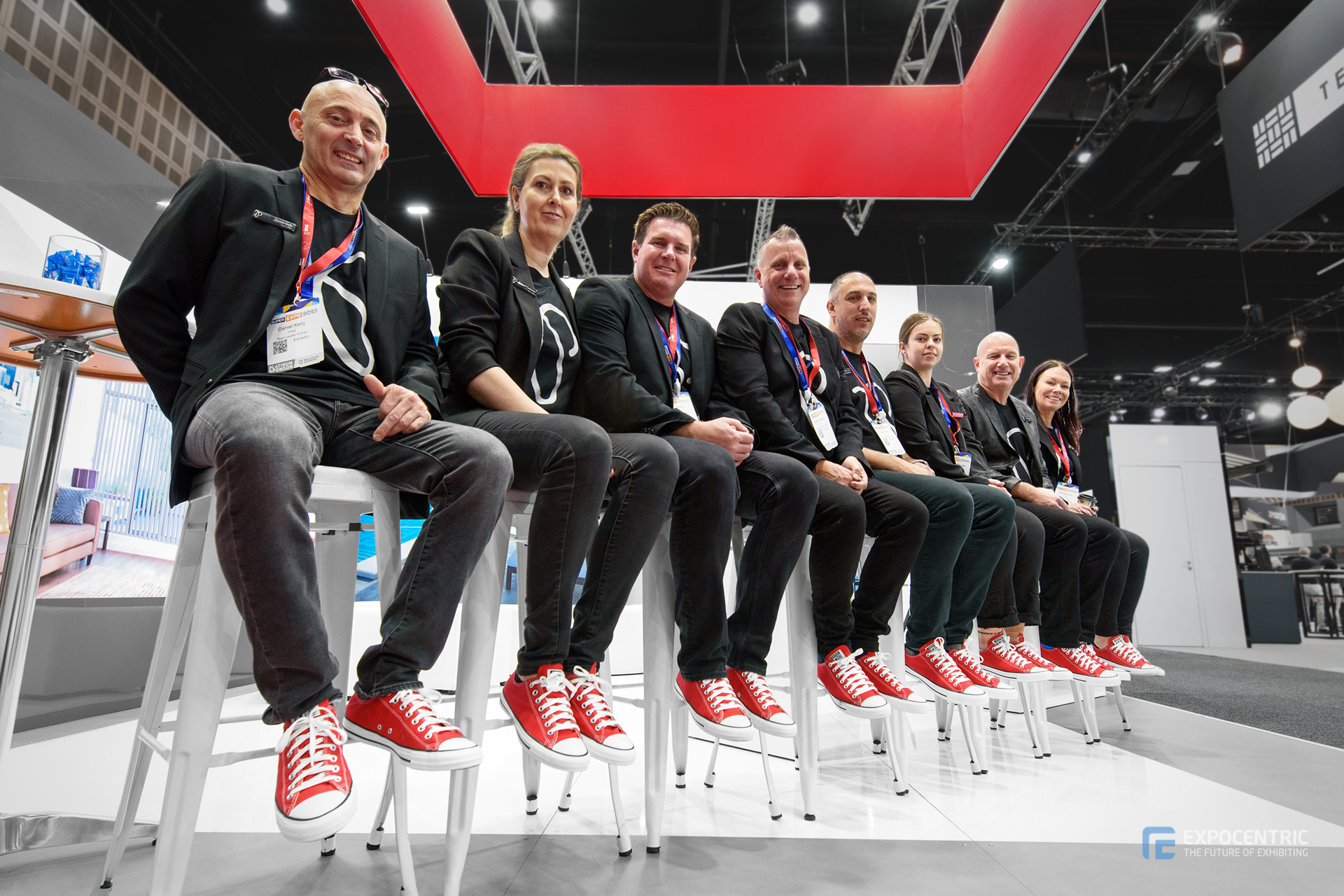
Before the Show
Find the right people for your booth
Having the right salespeople staffing your exhibition stand is critical. Something to consider is that
selling on the phone and selling in person are two very different things. Ideally, you want your sales to have charisma and character. In addition to choosing the best sales team, think about other members of your organization, such as Technical Support, Customer Success, and Marketers, who could add value to the stand further enhancing the visitor experience when they come to your stand. Another great idea is to ask a customer to help advocate your brand at the exhibition, no one sells better than a happy, loyal customer.
Over and above having a great Sales and support team staff your stand, is the presence of Senior Executives on the stand. Your Senior Executives will have the greatest impact if they are able to attend for up to half-day, when the exhibition is in full swing. For Senior Executives, Trade shows are the best place to get a sense of the industry and speak directly with the customer.

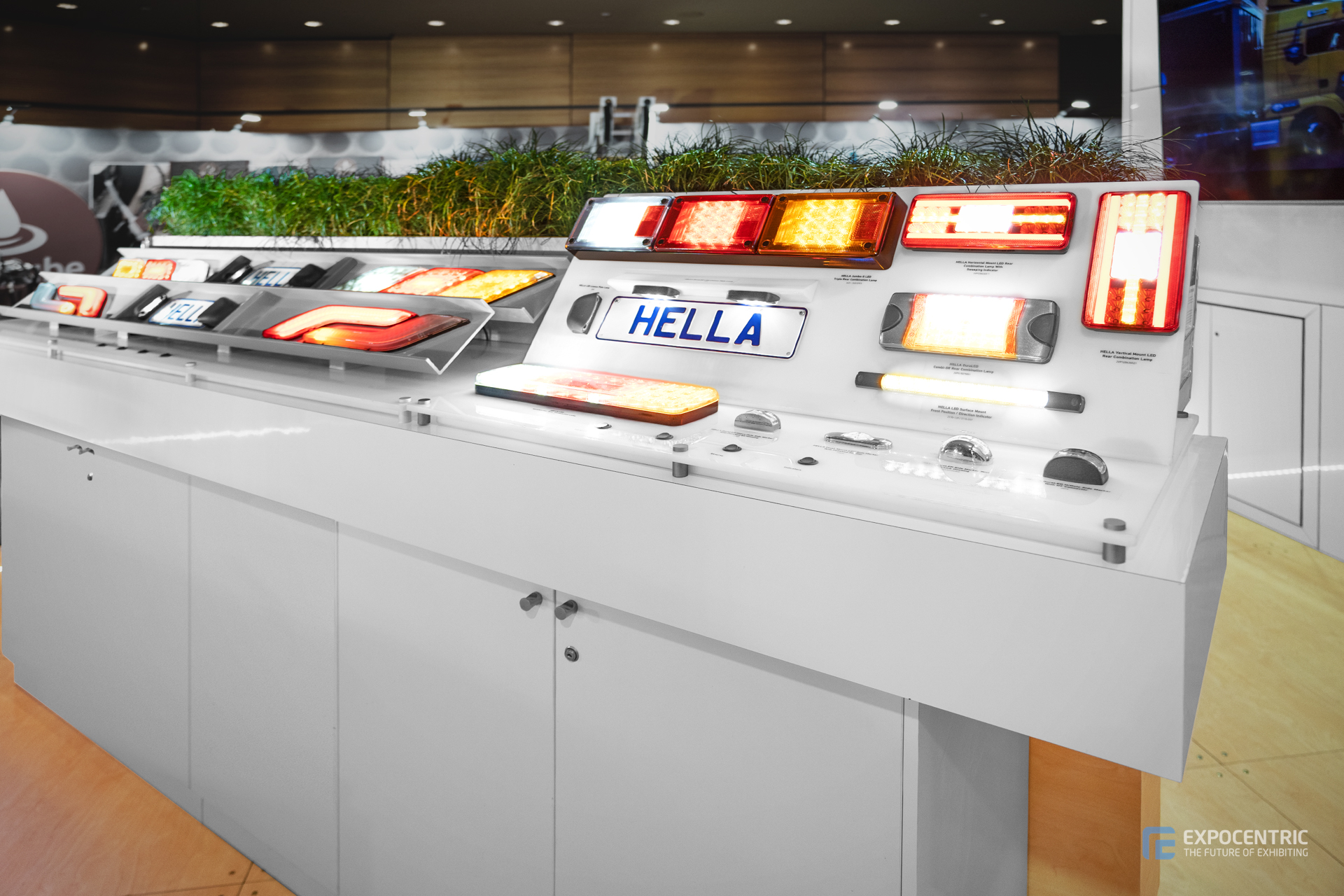

The right number of staff
A crowd of staff at an exhibition booth is never a good look, especially when some of them are just standing around and answering emails and getting distracted. It’s important to work out just the right amount of staff based on how many visitors you’re expecting each day (you can get this information from the show organisers and then calculate the required staff).
A good way to work out how many staff you should have at your booth could be done by the goals you set for the event and the expected visitor numbers. If you set objectives to obtain a certain amount of Inquiries, Marketing Qualified Leads (MQL), Sales Qualified Leads (SQL) and Sales you would like to achieve from this exhibition, you will then be able to calculate the staffing levels required to support your goals.
Following is a hypothetical example of an approach to calculating staffing levels for your exhibition stand. If you want to generate 100 qualified leads and it takes approximately 10-15 minutes on average to deal with each visitor, a salesperson in this example would be able to handle a theoretical maximum number of leads per day of between 32 and 48. The theoretical maximum number will be reduced once you factor in time off for breaks (morning and afternoon tea, lunch and comfort stops). In this example, a good staffing level for the stand would be 3-4 salespeople.
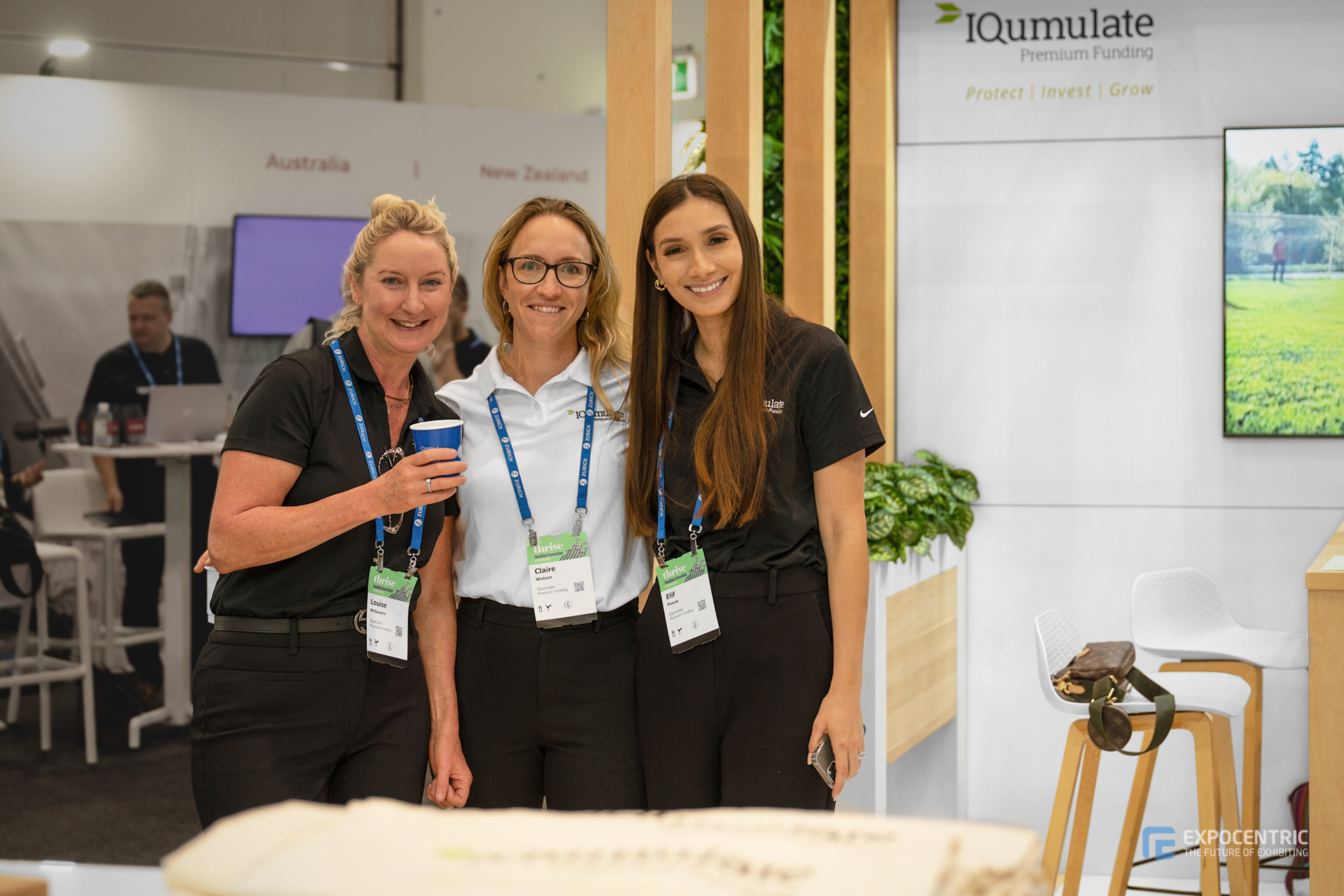
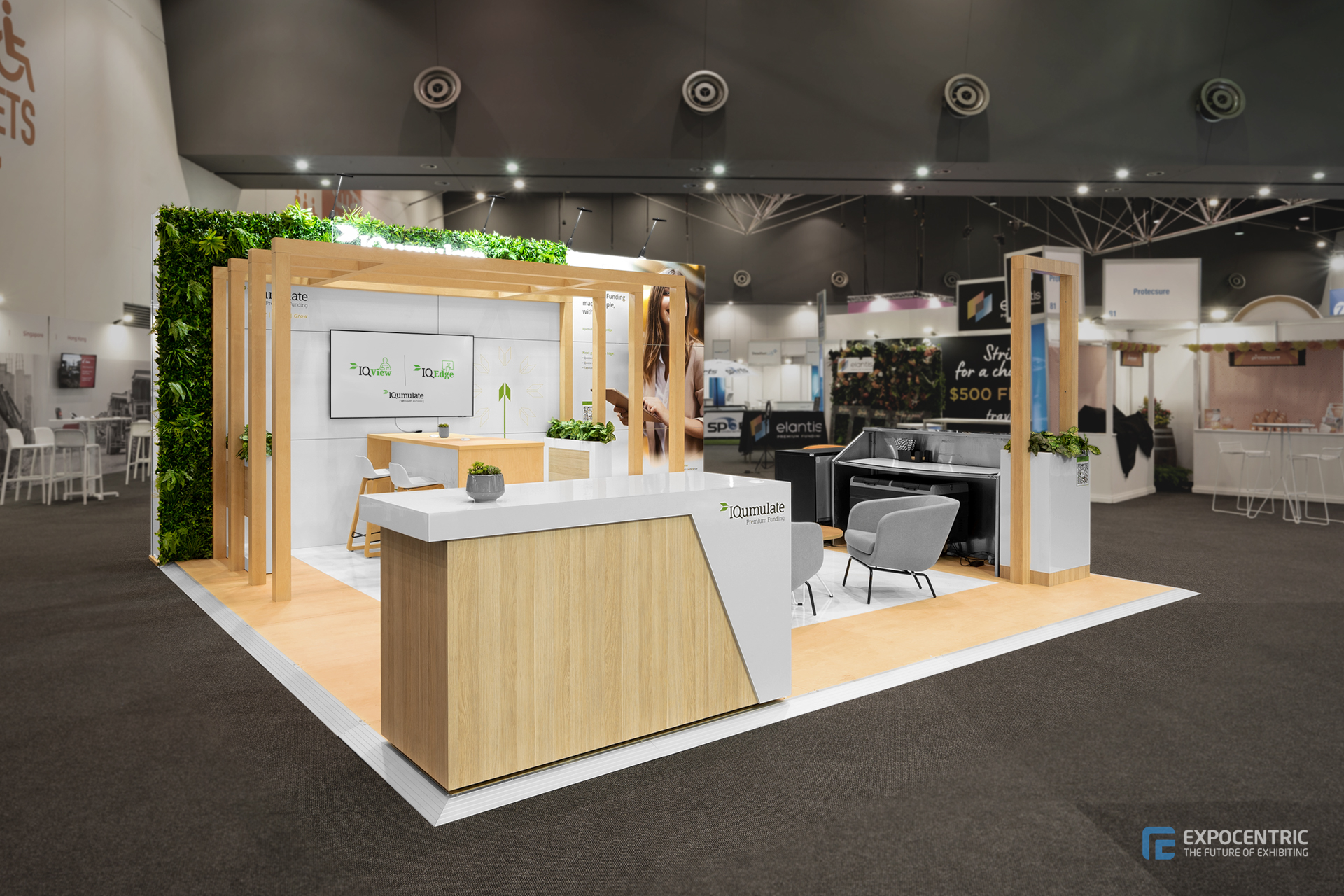
Get your A-team on the same page
Now that you have defined your objectives for the show and have chosen the Sales and Support team to achieve the objectives, it’s time to work out what you are going to tell your team to achieve success.
Set up an event briefing meeting with the chosen Sales and Support team. At the briefing provide your events teams with the following:
- The Company objectives for the show
- Why they were chosen to be part of the team
- The show strategy, goals, and objectives
- The key message that all team members need to deliver
- Each person’s role on the stand
- Training on how to document qualify leads
- How any competitions that you run works. For example, conditions of entry, prizes, draw time and dates etc.
Ideally, the briefing meeting should be run by either the CEO, MD or Senior Management at your company, to emphasis and importance of this event, as well as build hype and buzz.
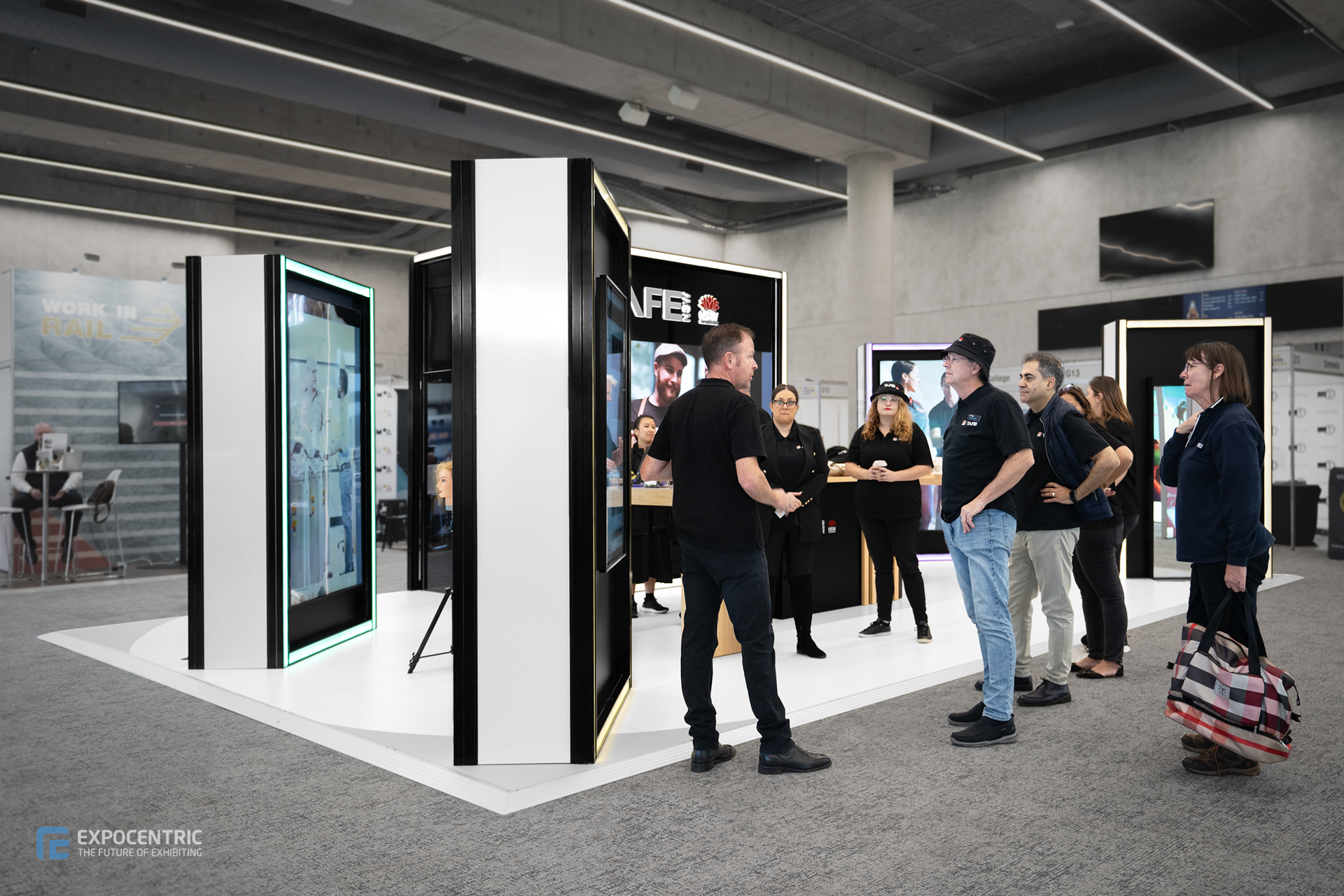
At the Show
Set your team up for success
Create a daily booth roster for the team staffing your stand ensuring that, each staff member is given a balance of booth time and sufficient breaks. Standing up all day under bright lights and having conversations on the loop can be draining. Having a booth manager for each shift is a good best practice to ensure accountability and general management of the booth.
The big day has arrived and so have your staff members. Get your team to come in half an hour to an hour earlier (depending on the complexity of your stand) to ensure they are familiar with the location of all elements of the stand, i.e. location of products, demonstrations stations and how they work, promotional materials and the show badge scanner and how to operate it.
Before the exhibition hall opens, reiterate the key steps in your defined Sales process and the overarching Company objective for this exhibition with the team The process could look like the attached example:
- Greet the visitor
- Qualify their interest
- Give enough information to engage them
- Gain a commitment as quickly as possible
- Scan, scan, scan and complete the badge scanner form with as much information as possible.
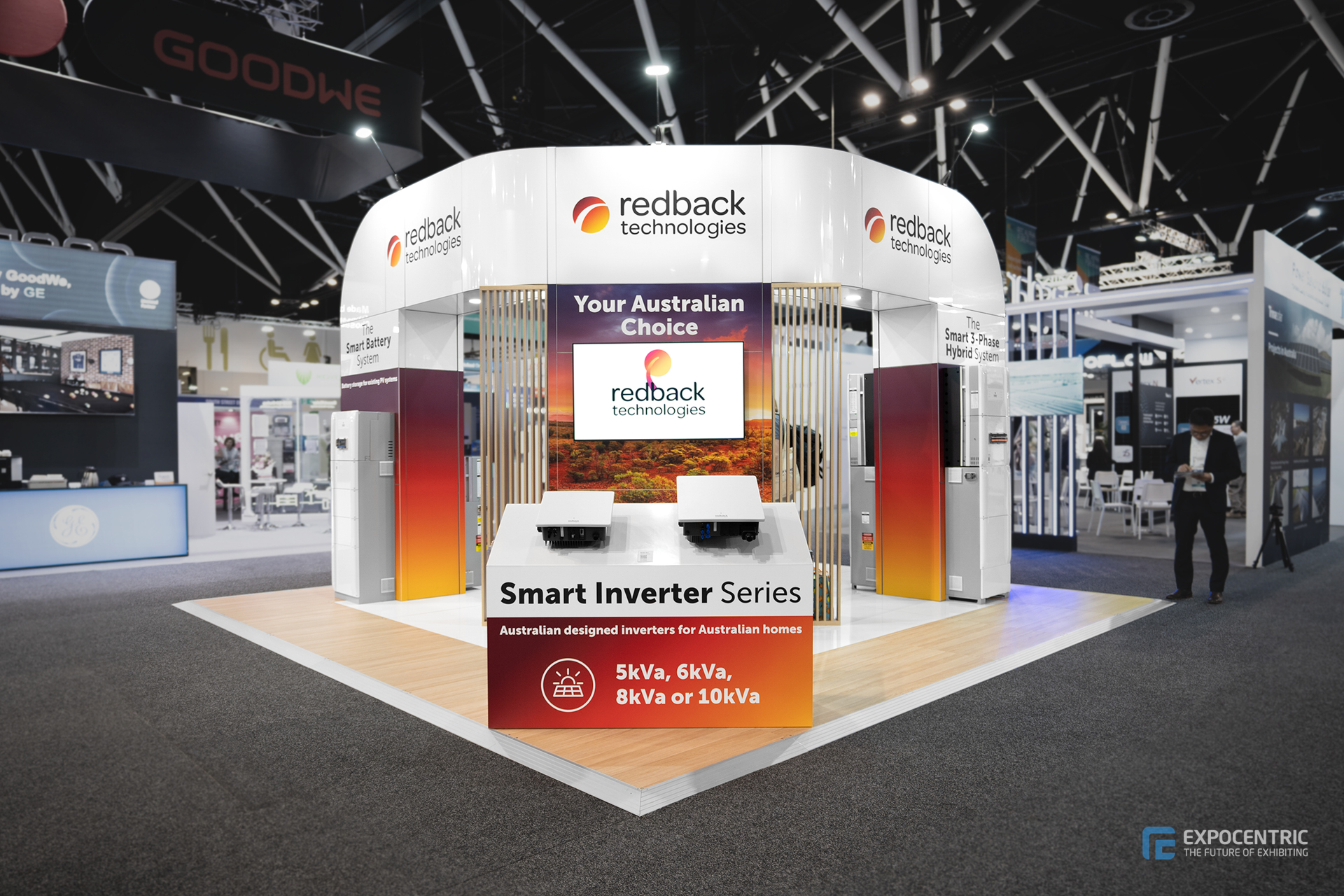
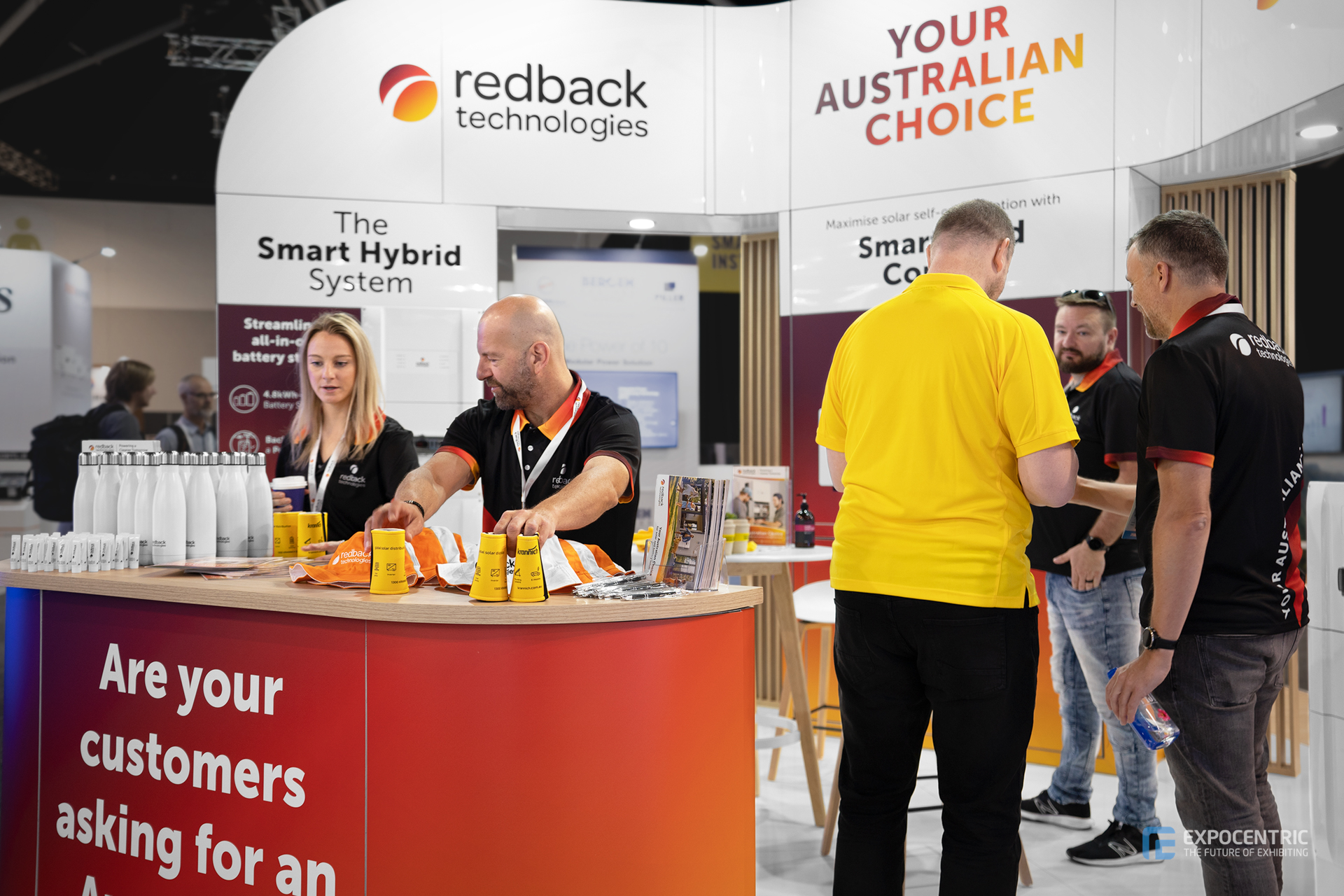
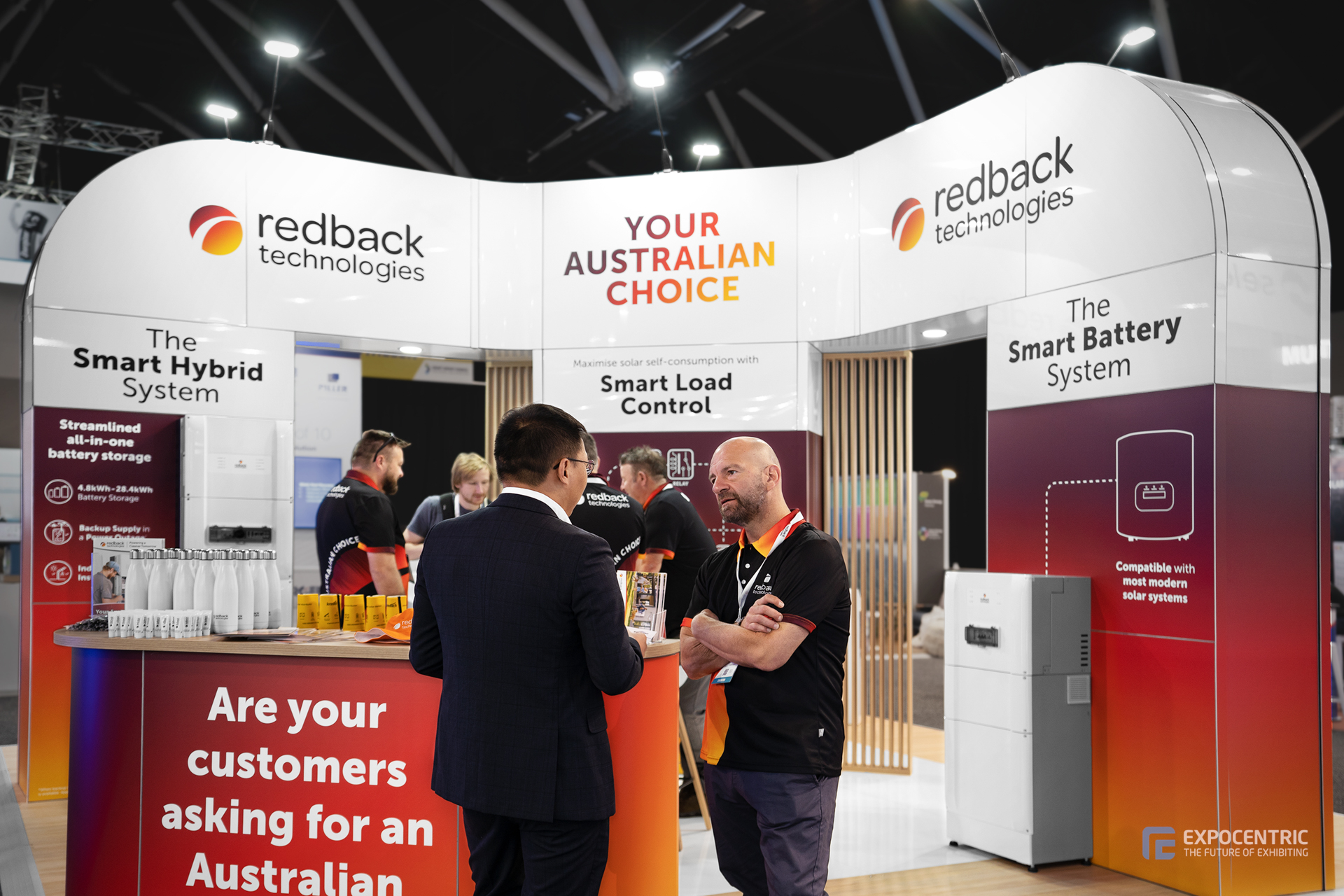
Prospect qualification
It’s important to explain to your team staffing your stand that not every visitor will be considered as a lead. Some people might have a general interest or may not qualify the target criteria that was set (e.g. company size). Make sure your team members understand your target audience and how to identify them, to maximise the Return On Investment (ROI) from the exhibition.
Ensure the team are trained on the questions they can ask to quickly identify if the visitor is a prospect. This way your staff can focus their efforts on spending time talking to prospects. Another tool that some exhibitions provide is to colour code delegates badges to identify the type of visitor. Ensure your team is across all available aides to assist in the process of qualifying leads.
Conversation Starters
Good conversation starters that are engaging and captivating are an important tool for your stands Sales People. Examples of conversation starters include:
- ‘Good morning, first name’ (by sneakily looking at their name badge)
- ‘What’s the most interesting thing you’ve seen at the show so far?’,
- ‘I see you’re with ‘company name’, what do you do?’
- ‘Have you heard about our company before?’
- ‘How can we make your visit to our stand valuable to you?’.
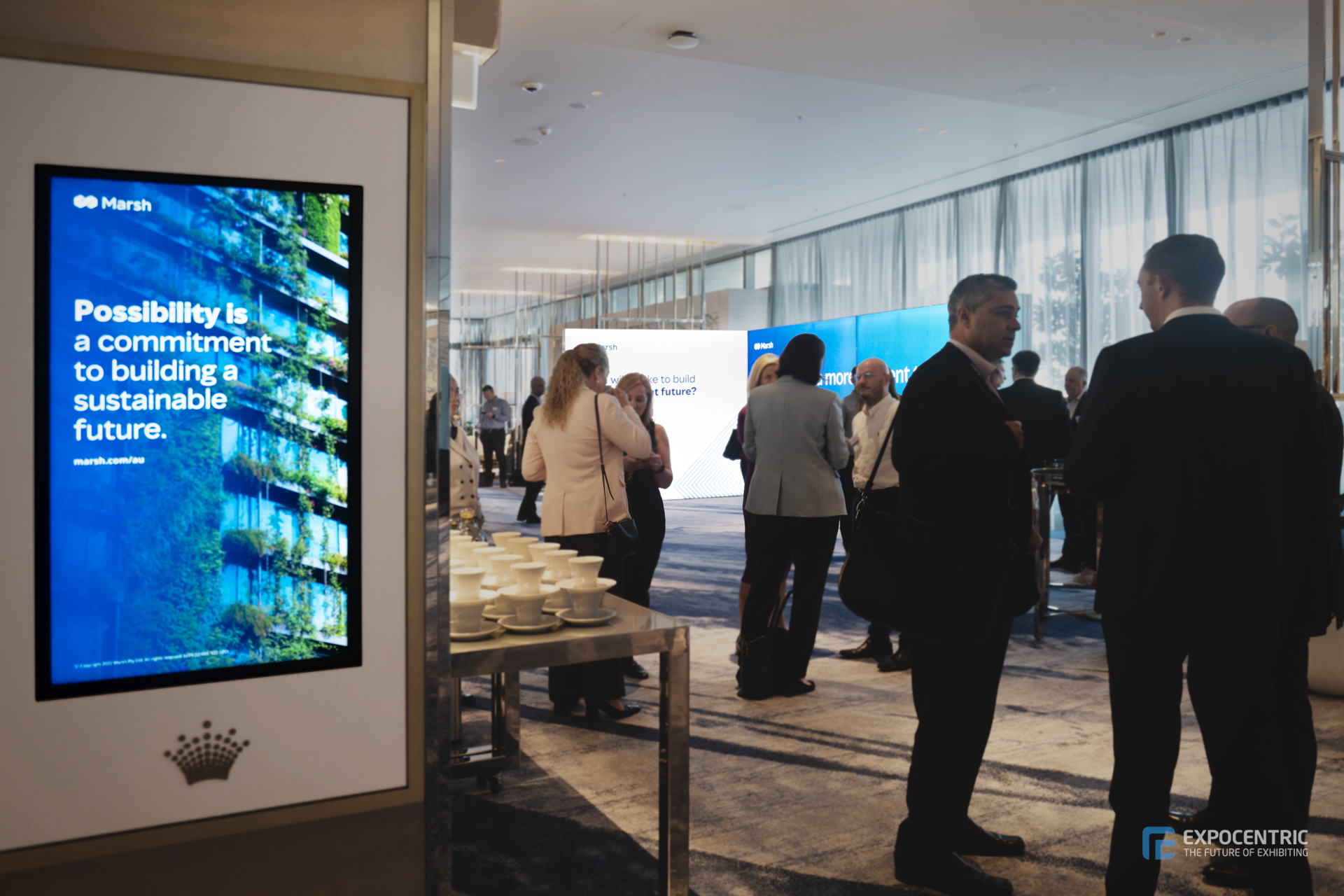
After the Show
The De-Brief
Post-show de-brief meeting with all participants is a critical part of a company’s exhibition process. This is where you have the opportunity to gather feedback from your show team members. It’s best to conduct your post-show de-brief straight after the event and capture what the team member thought:
- Went well
- Did not go so well
- Ideas for future stands
Your stands overall appearance is essential to attracting key prospects and leaving them with a great lasting impression. Having the correct staff on your booth can truly make or break the overall participation success, it’s important to select the right team for your exhibition stand, to engage with prospects and build relationships.
Have you thought about what type of booth structure or design would best represent your brand at your next exhibition, so you can attract prospects to your booth? Expocentric can provide you with a complimentary consultation for a custom booth design and a staffing strategy to not only help your brand stand out but also deliver outstanding ROI from your exhibitions.
If you need some help with coming up with creative ideas or want to learn the latest interactive technology to attract your target audience to your booth, Expocentric can help you. Contact us today to have a chat.
